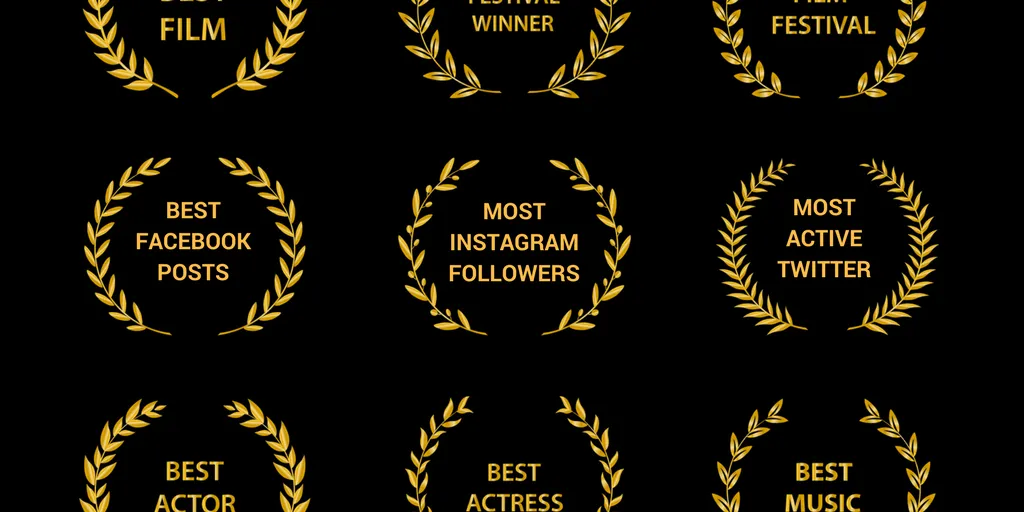
How Your Likes and Follows Are Changing Hollywood
Movie studios, which over the summer unleashed a gamut of blockbuster franchises, are now turning to quieter, more adult-skewing, awards-bait fare. Television networks are positioning their new series in the hopes of finding the next big thing. Through it all, social media plays a vital role, impacting everything from casting to marketing to the prediction of ratings and box office results.
Since the wildly successful viral campaign of The Blair Witch Project (1999), digital marketing has become a standard component in Hollywood’s marketing arsenal; the rise of social media only compounded the importance of leveraging online platforms to fill seats. Now, social media has enough clout to impact the way films are assembled, right from the start. When Game of Thrones’ Sophie Turner acknowledged that she had won a role over “a far better actress” (her words) simply because Turner had a stronger social following, her admission made news. However, it was anything but news to Hollywood casting folks, for whom a performer’s social strength is a vital consideration. Oliver Luckett of L.A. media company theAudience recounts a 2014 casting discussion where it was noted that only two of six actors under consideration had any meaningful social media standing:
They were people like George Clooney, Brad Pitt, and Angelina Jolie—there’s a whole list of them, people who publicly denounce social media… I’ve seen those people’s names on lists literally checked off because they don’t have a Facebook page.
At the other end of the production schedule comes box office tracking, which attempts to predict opening weekend grosses. Firms like RelishMIX are tapped to track social chatter for entertainment entities, and the results are often quite telling. Measuring an upcoming film’s mentions on Twitter can reveal its want-to-see factor. If tracking shows minimal increase in social conversation the month before release, you’re left with bombs like In the Heart of the Sea or Point Break, which saw their mentions merely double in the weeks before release. Compare that with Mad Max: Fury Road and Jurassic World, which saw their buzz jump to 25x and 16x, respectively.

Of similar importance is the combined social presence of a film’s cast (and, in some cases, director). The above chart measures the social impact of today’s strongest film franchises. What’s fueling all this activity on these series’ social pages? Beyond movie clips and pre-release teases, it’s the everyday activity of their casts. The Fast & Furious franchise hits some truly amazing social heights in large part due to the incredibly robust social followings of its cast. For starters, take headliners Vin Diesel and Dwayne Johnson: Diesel has more than 100 million followers on Facebook, while Johnson has 93 million Instagram followers. In fact, on August 30, Johnson’s Instagram account posted a screenshot from The Hollywood Reporter naming him the number-one actor in social media. Yes, the industry stalwart offers, along with their box office tallies and Nielsen ratings, a weekly ranking of performers based on their social activity.
Still, a strong social cast can’t overcome the strongest influencer on social media: word of mouth. A recent box office showdown saw The Hitman’s Bodyguard released against Logan Lucky. The latter had a stronger social cast (110.4 million to Hitman’s 76.4 million), with Logan star Channing Tatum alone having more followers than Hitman’s Ryan Reynolds, Samuel L. Jackson, and Salma Hayek combined. Yet the online chatter went in Hitman’s direction, with not-so Lucky falling victim to the Twitter Effect; the films’ grosses support the audiences’ early verdict.

On the small screen, networks are increasingly relying on audiences’ interactions with their favorite shows on social media to boost ratings. One such series that has seen its fortunes maintain a steady viewership over 15 years (when most other shows would have long since vanished) is the Bachelor franchise. The show has an extremely active social fan base, known as “Bachelor Nation,” that eats up the plethora of live-tweeting commentators as much as the show’s contestants covet the Final Rose. While host Chris Harrison admits that the franchise’s longevity is “a bizarre anomaly in TV,” it’s the strong social hold that keeps viewers coming back year after year.
It’s no wonder longtime ratings measurement company Nielsen recently launched its Social Content Ratings, which analyze “owned and organic activity” within the total television conversation. And other ratings companies are following suit: Kantar Media now incorporates Facebook and Twitter engagement into its TV ratings reporting.
Production companies, networks, studios, and even the performers and creators themselves have to come to terms with a new mantra — tweet or die. They need to remain engaged with their fans in an organic, genuine way. As people who’ve managed engagement for a number of big names, we can attest to how important it is to set the right tone and ensure an ongoing, organic conversation. Social-averse players would be smart to seek similar help with their own engagement. We’re ready when you are, Brad and George.

